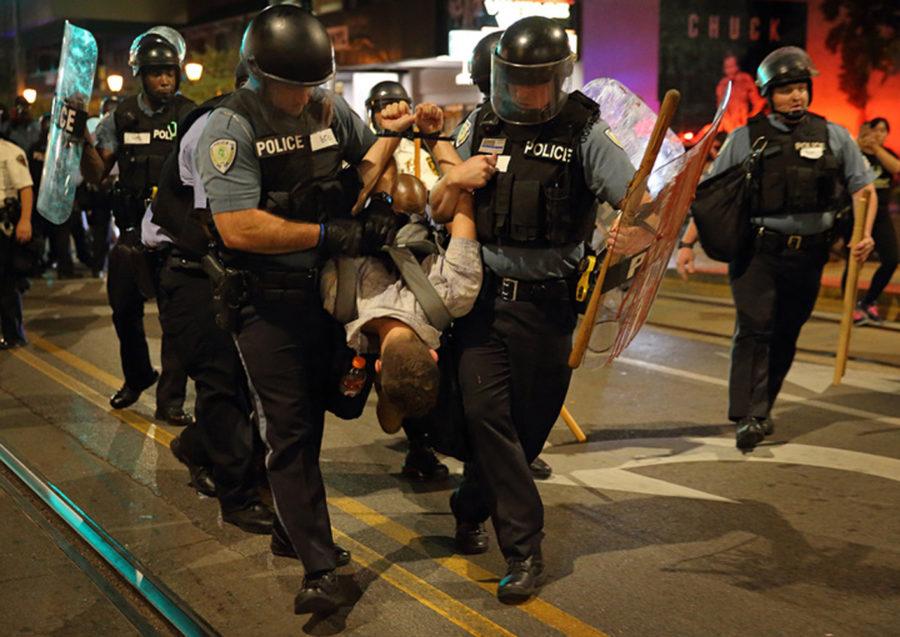Conventional wisdom proposes that it’s difficult to truly care about an issue until that issue affects you personally. For journalists in St. Louis, the controversy surrounding police brutality in America is coming to that point.
In the light of protests during the past week and a half, local, national and student media have descended on epicenters of unrest in the city to cover the story. After a jury acquitted Jason Stockley — a former St. Louis police officer who fatally shot black motorist Anthony Lamar Smith in 2011 — protests began, and many turned violent.
As with past protests — like those that occurred in Ferguson, Missouri, in 2014 — coverage of this month’s violence is essential. And the reputation police in the St. Louis area gained for using extreme tactics in 2014 makes coverage of incidents of police brutality particularly relevant.
It’s both confusing and outrageous, then, that police chose to extend their abuses to the press during the course of this month’s protests. St. Louis City Police Chief Lawrence O’Toole even bragged to the St. Louis Post-Dispatch that his officers “owned tonight” on an evening last week when his department arrested 121 individuals at a downtown protest.
Among those the department arrested were journalists from Getty and the Post-Dispatch, not to mention an undercover member of their own force. In a complaint to the city’s police, the Post-Dispatch noted that its reporter was arrested with “unneeded and inappropriate force,” causing serious injury to his legs and back. The paper also suggested police had potentially violated the journalist’s Fourth Amendment rights by reviewing the contents of his phone.
The city’s police department has already attracted a lawsuit from the American Civil Liberties Union in response to what it calls “excessive force and the use of chemical agents without warning.” But perhaps even more disturbing is the police’s treatment of student journalists at the scene of the protests.
Davis Winborne and Ellie Cherryhomes — two student reporters from the University of Missouri — were in St. Louis last weekend to cover the city’s protests. They had press credentials and clear markings as members of the press, present to make a record of events for the general public. But police and SWAT members corralled the students and other journalists in among demonstrators. Winborn said he was hit with a rubber bullet and choked after a police officer ripped off his helmet back, cutting off his air supply. Police only released the group of detained journalists later in the night after a freelance photographer persuaded the police to let them go.
The charges that members of the press have levied against St. Louis’ police in the past few weeks have been horrifying. Law enforcement are in a tense position trying to police these violent protests, but they’re doing themselves no favors harming and detaining those trying to document the events.
Incidents like these show how extensive police abuse of power is in the United States, and should remind people from every part of society how immediate the issue is for groups in our country — like minority communities in St. Louis.


